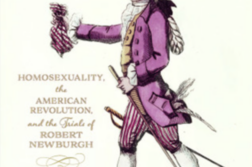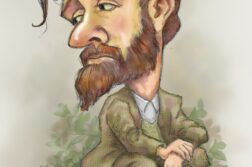WHERE ARE WE in the struggle for gay rights in the United States? Are we in the early stages of what will become a successful mass movement for equal civil rights and respect? Or have we reached the highest point of advance for the time being—where we have persuaded many fair-minded people to disdain homophobia, but have lost the momentum to the well-organized and more powerful forces of conservative backlash?
I believe we are in a historic period somewhat comparable to the African-American struggle for justice in the mid-1950’s. At that crucial turning point, African Americans were enjoying some important gains but still endured blatantly discriminatory laws and practices, notably in the South. Further improvement required the skillfully planned and courageously enacted mass movement that came in the 1960’s. Although racism and homophobia are different animals, and the context now surely differs from the 1960’s, the black Civil Rights Movement has many lessons for us, whether we are GLBT movement strategists or just average people who care about equality.
What most people know about the Civil Rights Movement (if they know this much) is that in 1954 the Supreme Court ruled that segregation was unconstitutional in the landmark Brown v. Board of Education decision. Next, in the early 1960’s, the charismatic Rev. Martin Luther King, Jr., led nonviolent demonstrations like the famous March on Washington. He spoke eloquently of a dream where black and white children could grow up side by side in a world that gave them equal opportunities. Although he encountered some virulent racism in the deep South, King’s appeals to the conscience of white Americans persuaded government officials to do the right thing, resulting in path-breaking laws like the Civil Rights Act of 1964 and the Voting Rights Act of 1965.





